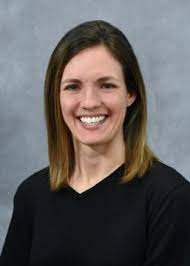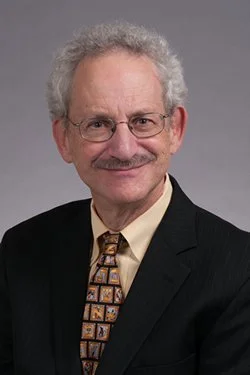
Clinical Pharmacology Essentials 2024
Get 16 Hours of Pharmacology CME
The ANCC requires all re-certification candidates to complete 75 continuing education hours, plus one or more of the eight ANCC renewal categories in the candidate’s certification specialty. All advanced practice registered nurses (nurse practitioners and clinical nurse specialists) must complete 25 contact hours of pharmacotherapeutics as a portion of the 75 required hours.
This course provides 16 hours of on demand pharmacotherapeutics. The recordings are designed to be watched on your smartphone or computer. Each topic contains a recording, course slides, and a self-evaluation quiz.
Price: $299 for 16 Contact Hours
Topic 1: GI Pharmacology Update - Dr. Buch - 4 Hours
Assessing Abdominal Pain: A Practical Review:
Define the appropriate workup for several interactive cases of acute abdominal pain.
Illustrate the pitfalls in making a diagnosis.
Clinical Dilemmas in GI Bleeding:
Describe the limitations of colonoscopy.
Recognize the importance of “Alarm Symptoms”.
Describe advanced endoscopic techniques that are used to evaluate GI bleeding.
Recognize the safe use of anti-platelet and anticoagulation medications post GI bleeding.
Colon Cancer Evaluation and Prevention: What’s New?
State the best practices that lead to colon cancer prevention.
Review types of polyps and their consequences.
Review the pitfalls of colonoscopy screening.
.Show reasonable alternatives to colonoscopy.
Peptic Ulcer Disease and Helicobacter Highlights:
Identify the importance of risk factors in the development of UGI bleeding.
Select appropriate candidates for long term PPI therapy.
Review noninvasive ways of making a H pylori diagnosis.
Manage antibiotic therapy for Helicobacter 2024.
Topic 2: An Evidence-Based Approach to Treating T2D in Adults - Dr. Weart - 2 Hours
Describe the 2024 American Diabetes Association Standards of Care for Patients with Diabetes and the evidence on which they are based.
Apply the results of landmark diabetes trials that established improved glycemic control reduces the risk of diabetes-related complications in patients with T2D
Apply the evolving paradigm by which the treatment of T2D (A1C reduction) has shifted to an outcome-based approach focused on risk reduction, particularly in older patients with established CVD, HF, CKD and/or Obesity.
Topic 3: Chronic Kidney Disease Pharmacotherapy - Dr. Vondracek - 2 Hours
Discuss the mechanisms of action, role and pros/cons of SGLT2-inhibitors, GLP-1 inhibitors and finerenone in the prevention of CKD progression.
Describe the mechanisms of action, role and pros/cons of therapies for the management of hyperkalemia in patients with CKD.
Choose appropriate therapy for the management of hyperkalemia in a patient with CKD.
Describe the mechanisms of action, role, and pros/cons of therapies for the management of anemia in patients with CKD.
Initiate appropriate iron and ESA therapy in a patient with anemia and CKD.
Discuss the roles of phosphate, calcium, vitamin D and parathyroid hormone in the development of Chronic Kidney Disease – Mineral and Bone Disorder (CKD-MBD)
Describe the mechanisms of action, and pros/cons of therapies for the management of CKD-MBD.
Choose an appropriate therapy for the management of hyperphosphatemia, low vitamin D and secondary hyperparathyroidism in a patient with CKD.
Topic 4: Treatment of Alzheimer’s, Depression and Adult Onset ADHD/ADD - Dr. Caballero-2 Hours
Alzheimer’s Disease and Depression Treatment
Explain standard and newer treatment options for cognitive disorders (e.g., Alzheimer’s disease).
Recognize preferred treatments for managing comorbid psychiatric issues in patients with cognitive disorders.
Describe how to counsel caregivers and patients regarding treatment options for cognitive disorders.
ADHD
Identify differences between stimulant medications and formulations.
Discuss the utility of using non-stimulants in the treatment of adult ADHD.
Describe comorbidities that may impact treatment in adult ADH.
Topic 5: AHA/ACC/HFSA Guidelines for the Management of Heart Failure, Lipids, and Blood Pressure - Dr. Saseen-2 Hours
Explain recommendations from the American College of Cardiology/American Heart Association guidelines for treatment of patients with hypertension, hypercholesterolemia, and heart failure.
Identify the optimal use of combination therapy pharmacotherapy for patients with hypertension, including resistant hypertension.
Describe the similarities and differences in pharmacotherapy for heart failure with reduced ejection fraction and heart failure with preserved ejection fraction.
List recommendations from the ACC Expert Consensus Decision Pathway for nons-statins and treatment of hypertriglyceridemia.
Discuss new and emerging pharmacotherapy options for patients with dyslipidemia.
Select treatment plans to treat patients with hypertension, heart failure, and/or dyslipidemia.
Topic 6: Treatment of Anaphylaxis – in Primary Care and Acute Care and Seizures in Acute Care - Dr. Sikora-1 Hour
Review treatment approach for anaphylaxis.
Create a treatment plan for the acute management of seizures.
Identify common adverse effects from common anti-epileptic medications.
Topic 7: Anti-infective Treatment (with Beers criteria) for Urinary Tract Infections (UTIs), Sinusitis, Pneumonia and Cellulitis-Dr. Bland-2 Hours
Evaluate methods to improve safety of antimicrobial prescribing in the elderly
Review antimicrobial therapy recommendations within Beers Criteria
Examine best antimicrobials practices through case application
Topic 8: Pharmacotherapy for Migraine Headaches including Botox for Headaches and TMJ - Dr. Bland-1 Hour
Review current older management strategies for migraine headaches.
Discuss role of newer agents including botulinum toxin.
Examine best practices through case application.
Expert Clinical Faculty
-

Christopher M. Bland, Pharm.D., FCCP, FIDSA, BCPS
Clinical Professor, Clinical and Administrative Pharmacy, University of Georgia College of Pharmacy, Clinical Pharma- cy Specialist, St. Joseph’s/ Candler Health System, Sa- vannah, Georgia. Co-founder of SERGE-45, practice-based research network, co-founder of TeachMePharm, drug therapy teaching platform.
-

Dr. Joshua Caballero
Associate Professor (Limited Term) for Clinical and Administrative Pharmacy at the College of Pharmacy. He received his undergraduate degree in Psychology from the University of Florida and his PharmD from the University of Tennessee Health Science Center in Memphis. During his postdoctoral training, he completed a PGY2 in Psychiatry at the University of Texas Health Science Center in San Antonio and a Pharmacotherapy Fellowship at The Ohio State University
-

Dr. Sheryl (Follin) Vondracek, Pharm.D., FCCP, BCPS
Board Certified Pharmacotherapy Specialist, Associate Professor, Department of Clinical Pharmacy, Skaggs School of Pharmacy and Pharmaceutical Sciences, University of Colorado
-

Joseph Saseen, Pharm.D., FASHP, FCCP, BCPS, BCACP
Joseph Saseen is Associate Dean for Clinical Affairs and Professor of Clinical Pharmacy and a Professor of Family Medicine. He also served as Vice Chair of the Department of Clinical Pharmacy for 10 years. Dr. Saseen has responsibilities for enhancing the school’s clinical enterprise, further developing sustainable clinical service models, and advocating for advancing the practice of pharmacy in the State of Colorado. His scholarly work includes almost 200 peer-reviewed publications and book chapters.
-

Dr. Andrea Sikora
Pharm.D., MSCR, FCCM, BCCCP Clinical Associate Professor University of Georgia, College of Pharmacy Clinical And Administrative Pharmacy, Augusta GADescription goes here
-

Dr. C. Wayne Weart | Pharm.D., BCPS, FASHP
Professor Emeritus of Family Medicine, Department of Family Medicine, Medical University of South Carolina, Professor Emeritus of Clinical Pharmacy & Outcome Sciences, South Carolina College of Pharmacy, MUSC Campus, Charleston, SC.
-

Peter S. Buch, MD, AGAF, FACP
Dr. Peter Buch is a clinical gastroenterologist with over 30 years of teaching experience. Teaching is his passion! His style is case based, practical, very interactive and fun. He has extensive local, national and international teaching experience. He has taught family doctors, internists, PAs, nurses, NPs and pharmacists. His evaluations have consistently been outstanding. Many organizations invite him back on a yearly basis. Dr. Buch always learns from his audiences and looks forward to learning WITH you!
Accreditation
University Learning Systems is accredited by the Accreditation Council for Pharmacy Education (ACPE) as a provider of continuing pharmacy education.
As an ACPE accredited provider, University Learning Systems is able to report credit directly to CPE Monitor. Credit for pharmacists is reported automatically to CPE-Monitor upon completion of the course. NO statement of credit is provided.
All other professions will receive a statement of credit upon completion of the course.
ACPE Credit is accepted by nurse practitioner certification organizations for pharmacology and general CE credit.
University Learning Systems is approved by the California Board of Registered Nursing and is a CE Broker approved provider for pharmacy, nursing and medicine.
This course provides Category 2 credit for physicians and physician assistants.
Credit to CE Broker is reported manually at this time. Please provide your state license number if you need credit reported to CE Broker.
These courses were recorded August 28-29, 2024 and are valid for credit until August 28, 2027.
